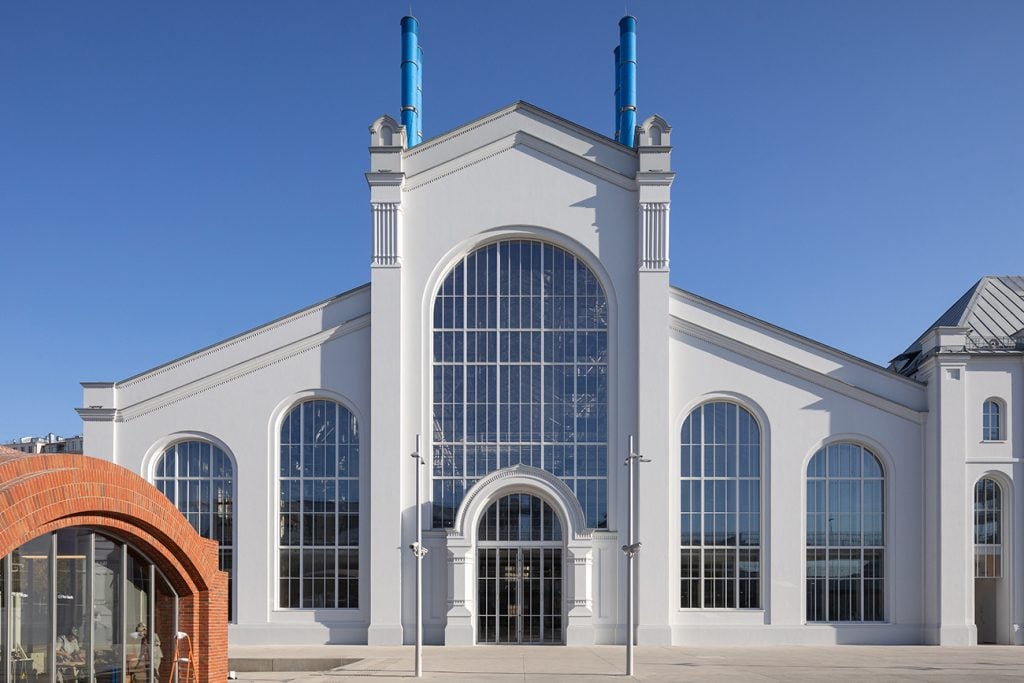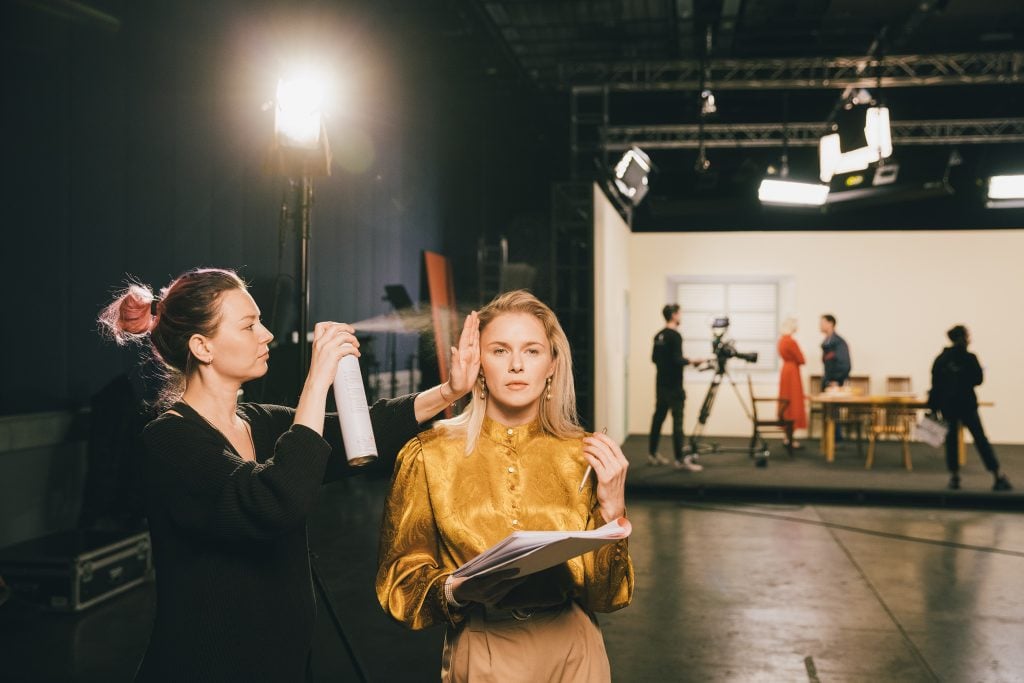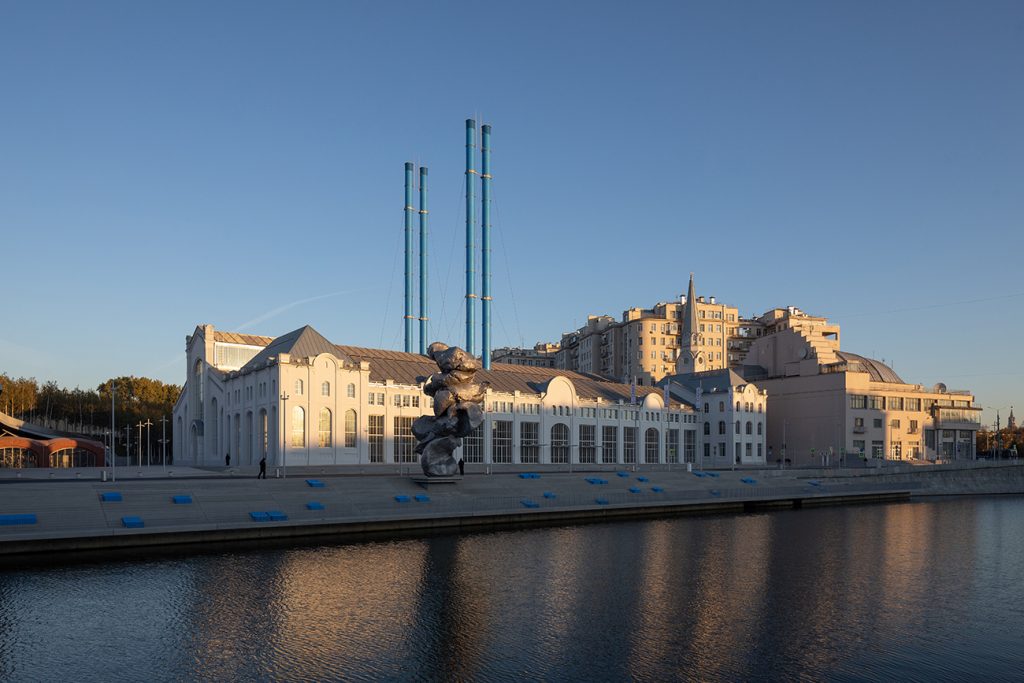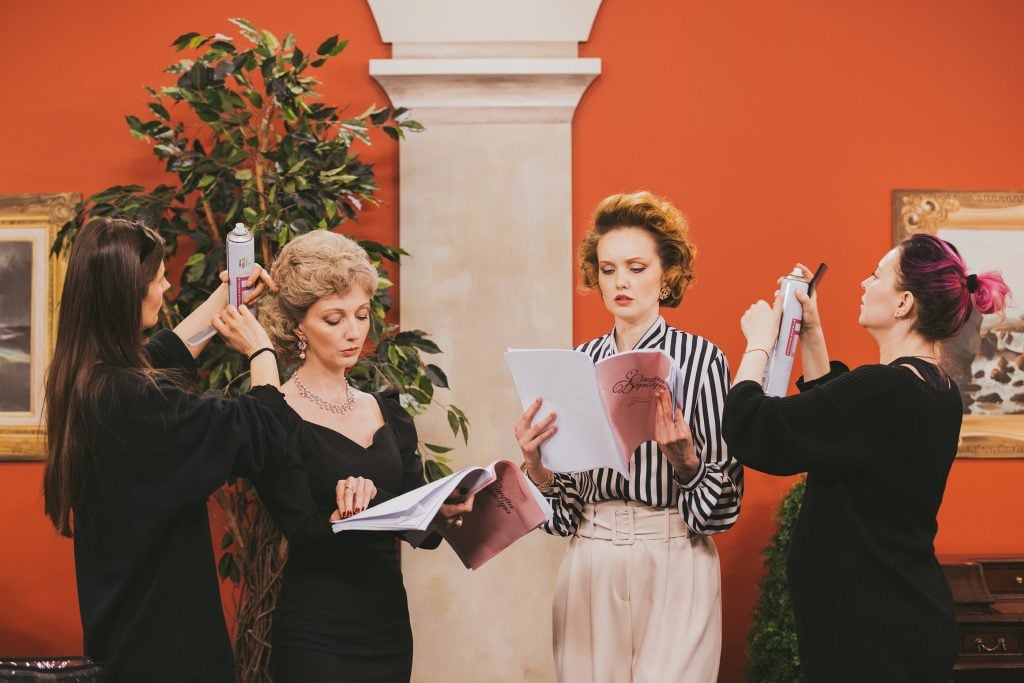Museums & Institutions
A Major New Art Center Has Opened in a Former Moscow Power Plant, But Rising Political Unrest in the Region Is Cooling Excitement
The opening of the international museum comes as tension rises between Russia and the West.

The opening of the international museum comes as tension rises between Russia and the West.

Kate Brown

Russian President Vladimir Putin took a tour this week of a century-old power plant, which has just reopened as a contemporary art center after a major, years-long renovation.
The GES-2 House of Culture, the newest home of the V-A-C Foundation, is an ambitious new cultural center set in the heart of Moscow, just opposite Russia’s formidable seat of power. It hopes to become a world-ranking cultural attraction and bring new creative energy to the Russian capital, though it has had to face down a pandemic as well as growing tensions between Russia and the West over Ukraine.
Nevertheless, GES-2 is well on its way to becoming a world-class institution. The museum welcomed international press last weekend to its first exhibition and its ultra-modern new home designed by Renzo Piano, who maintained as much of the early 20th-century structure as possible. Sprawling over a 328-foot-long stretch of the main gallery are its inaugural exhibitions and a new “living sculpture” by Icelandic artist Ragnar Kjartansson, comprised of a live film set with actors and a crew who are working over the next months to reshoot 98 episodes of a popular post-Soviet-era soap opera, Santa Barbara.

Ragnar Kjartansson, Santa Barbara (2021–22), durational performance, directed by Ása Helga Hjörleifsdóttir. Staging and production: Lorem Ipsum Commissioned by V-A-C Foundation, Moscow; Courtesy of the artist, Luhring Augustine, New York and i8 Gallery, Reykjavik/ Based on the series originally created by Bridget and Jerome Dobson ‘SANTA BARBARA’ ©1984 TwentiethCenturyFox Television, all rights reserved.
The 440,000-square-foot disused electrical facility has been under renovation for several years to transform it into an airy and futuristic meeting place for art, performance, and culture. The restoration included redoing its roof with large glass panels and windows on all sides, in order to flood the galleries with light, but also to give a sense of openness and accessibility. On the banks beside the river just outside stands Urs Fischers Big Clay No. 4. Inside, there’s an indoor cinema, areas for artist workshops, and a library, as well as large exhibition spaces.
The institution’s new location has been paid for by Leonid Mikhelson, the billionaire behind Russia’s largest private gas group, who cofounded of V-A-C foundation alongside its director, curator Teresa Iarocci Mavica. The privately-financed project has not disclosed its costs, though it was last stated in 2018 that the GES-2 may cost at least $300 million. No updated figure has been given, though V-A-C Foundation director Mavica told Moscow Times that it was “incredibly expensive.” Entry will be free of charge.

GES-2 House of Culture. Photo: Ivan Erofeev, 2021
“Culture is the process of learning about the world around us, the world of other people, the world within oneself. In other words, culture is a means of direct communication between everyone and everyone, in the most diverse forms,” said Mikhelson in a statement, calling the GES-2 “a space of cultural communication open to all.”
Kjartansson’s inaugural exhibition, which is called “Santa Barbara – A Living Sculpture” is a performance piece that takes over the main hall of the museum. Each day of the exhibition, the crew will shoot another episode, to be started and completed that day and shot in one take.
In another part of the museum, his artistic partner Ingibjörg Sigurjònsdottír curated a group show called “To Moscow! To Moscow! To Moscow!” which includes artists Roni Horn, Theaster Gates, and Carolee Schneemann. The projects are both part of the first “season” of the museum’s program, which explores a larger story that the GES-2 has set out to explore, called “Holy Barbarians, or Both Are Worse.” This topic hopes to address the complexities of post-Soviet Russia and its relationship to the West.

Ragnar Kjartansson, Santa Barbara, 2021–22 Durational performance, Directed by Ása Helga Hjörleifsdóttir. Staging and production: Lorem Ipsum Commissioned by V-A-C Foundation, Moscow; Courtesy of the artist, Luhring Augustine, New York and i8 Gallery, Reykjavik/ Based on the series originally created by Bridget and Jerome Dobson ‘SANTA BARBARA’ ©1984 TwentiethCenturyFox Television, all rights reserved.
And though it sets a jovial tone in some the darkest months of the year, the launch comes as the region is living through its second pandemic winter, but also amid escalating political tensions between Russia and the West. Nearly 100,000 Russian troops were sent to the Ukrainian border this week, and NATO allies, including the U.S. and the U.K., have threatened Putin that they would retaliate should an invasion take place.
Some also wonder how much freedom of expression there really will be at GES-2. One gallerist told the Moscow Times that the venue could run into problems given that the Russian government has reportedly said it would likely follow a “Chinese model where they completely freeze any political developments.”